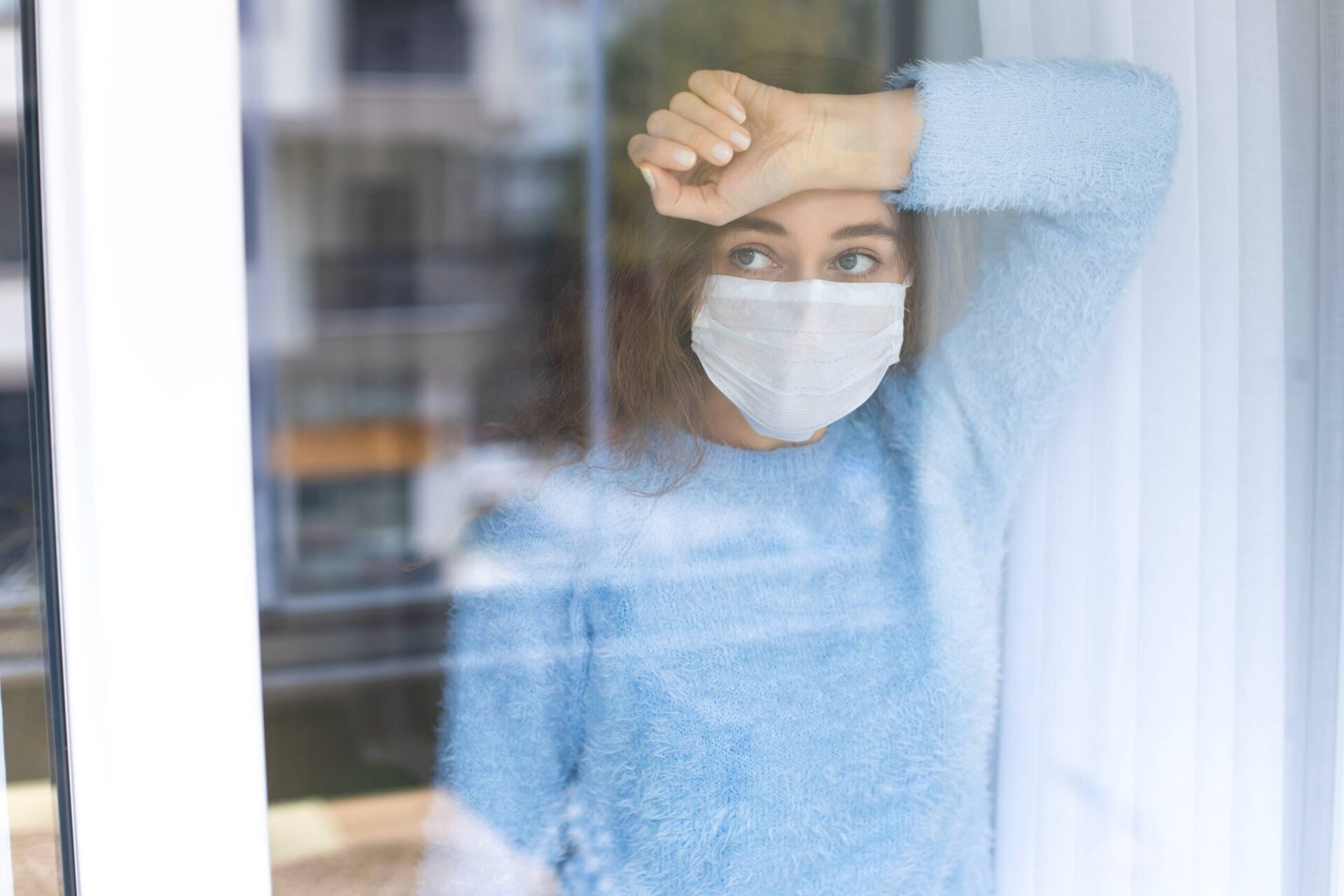The 2014 survey on mental health and wellbeing by the National Health Services, observed that nearly 50% adults in the UK believed that they suffered from some kind of diagnosable mental illness during their lifetime. The survey also concluded that only one-third of such adults got diagnosed.
Recently, the UK announced a 6 month lockdown to curb the Corona Virus spread. While you may avoid getting infected by the Covid-19 virus, you become highly vulnerable to mental illnesses, unless you look after your mental health.
Public Health England acknowledged this risk and initiated a campaign for “people to take care of their minds”. The 14 ways proposed in the campaign look simple enough and they can be highly effective in keeping you healthy.
We have re-organised these tips to get you started right away…
1. If possible, go out once a day or bring nature indoors: Maintain a social distance of 2 metres and follow other social distancing guidance – Guidelines dependent, you can take a daily walk to a nearby park or “green space”. If venturing out seems difficult, perhaps you could do some gardening at home and create your own pocket of natural surroundings. Mental Health experts agree on the positive impact of greenery on mental health and the same is endorsed by WHO, NASA and the NHS. NHS Fitness Studio as well Public Health England
2. Get Ample Sleep: Sleep some more and use this time to rejuvenate your mind and body. The world is quieter now; you can turn down the volume of devices in your house, remove screens around your bed and try to get quality sleep. When was the last time when you took a midday nap and slept 6 to 8 hours straight? Don’t worry, you can adapt to the busy life as and when you get back into it. Every Mind Matters sleep page can suggest some useful tips.
3. Manage your Physical Well-Being: You can use this time to develop some healthy habits to manage your physical health and appearance. Improve your diet and your water intake, exercise regularly, massage your body and reduce your consumption of drugs, tobacco and alcohol. You could also restore certain neglected aspects of your physical appearance and take care of your face, eyes, heels etc.). Public Health England suggests some 10 minute work outs while NHS Fitness Studio has some exercise videos of their own.
4. Stay Connected With Those You Trust: Restore and strengthen your bonding with people you trust. Technology offers you multiple ways to remain connected through phone and the web, but it is best if you get some face time over a video call every day. You could even try to reconnect with old friends.
5. Talk about Your Worries: Share your worries, your fears and your feelings of helplessness in the current lockdown with your confidants. When you talk about them and how you cope with them, you may also be helping your friends and family to feel they are here to support you and develop their own coping mechanisms. If you are isolated from others, you can talk to NHS recommended helplines or even participate in online support groups.
6. Manage Your Difficult Feelings: Things are beyond your control and you see a virus bring the entire world into imposing restrictions. This can cause a lot of anxiety and trigger difficult feelings. Do not replay these thoughts in your mind, don’t panic and don’t get overwhelmed. It is not difficult; you can control yourself by practicing some helpful tips from NHS mental wellbeing audio guides & the Every Mind Matters page on anxiety.
7. Get the Facts: Validate information that enables you to determine risk factors and necessary precautions pertaining to the Coronavirus. The NHS website and the official pages of GOV.UK can help you fact check and avoid unnecessary panic. If you are well informed, you can prevent the spread of misinformation and vile propaganda that may affect the mental health of others adversely.
8. Optimise your Consumption of Information & Media: Limit your time on media coverage of the pandemic and the noise of social media. Schedule a specific time to check the news. If you make the newsprint your primary source of information, you may restrict your news-time to can hour of well-paced reading.
9. Help & Support Others: If you try, you can honor the Covid-19 guidelines and still help a friend or member of family nearby. You can also contribute to a community support group. When in isolation, you could listen and accept the worries, concerns and behaviors of other people who trust you. Helping others can relieve you of stress and anxiety as long as you don’t let their worries take a toll on you.
10. Keep your mind active: Play a game, solve a puzzle, and try a crossword or a Sudoku. Do what you must to keep your mind active and engaged.
11. Take time to relax and focus on the present: This can help with difficult emotions, worries about the future, and can improve wellbeing. Relaxation techniques can also help some people to deal with feelings of anxiety. For useful resources see Every Mind Matters and NHS’ mindfulness page.
12. Set goals: Set yourself some practical goals and then achieve them. You could learn things, revisit a family activity, read a book, redecorate or repair your house, garden or even learn your way around social media to filter correct and useful information. When you get what you set out to do, it can be a big boost to your mental health.
13. Do things you enjoy: Do you enjoy fidgeting and scribbling when you are stressed or anxious? Why not do something that you enjoy? You could relax in your own home and create an enjoyable environment or you could practice your favorite hobby, stream a live event or movie. You can try and build something or scribble with purpose and learn to sketch or try calligraphy or journaling.
14. Think about your new daily routine: You have to adapt a new lifestyle and you have to plan it for yourself. Use these suggestions to establish a healthy daily routine but do not stress if you do not achieve it, modify it until you do.
For further bespoke advice for you or your team, please contact us on +44 20 7060 4375










